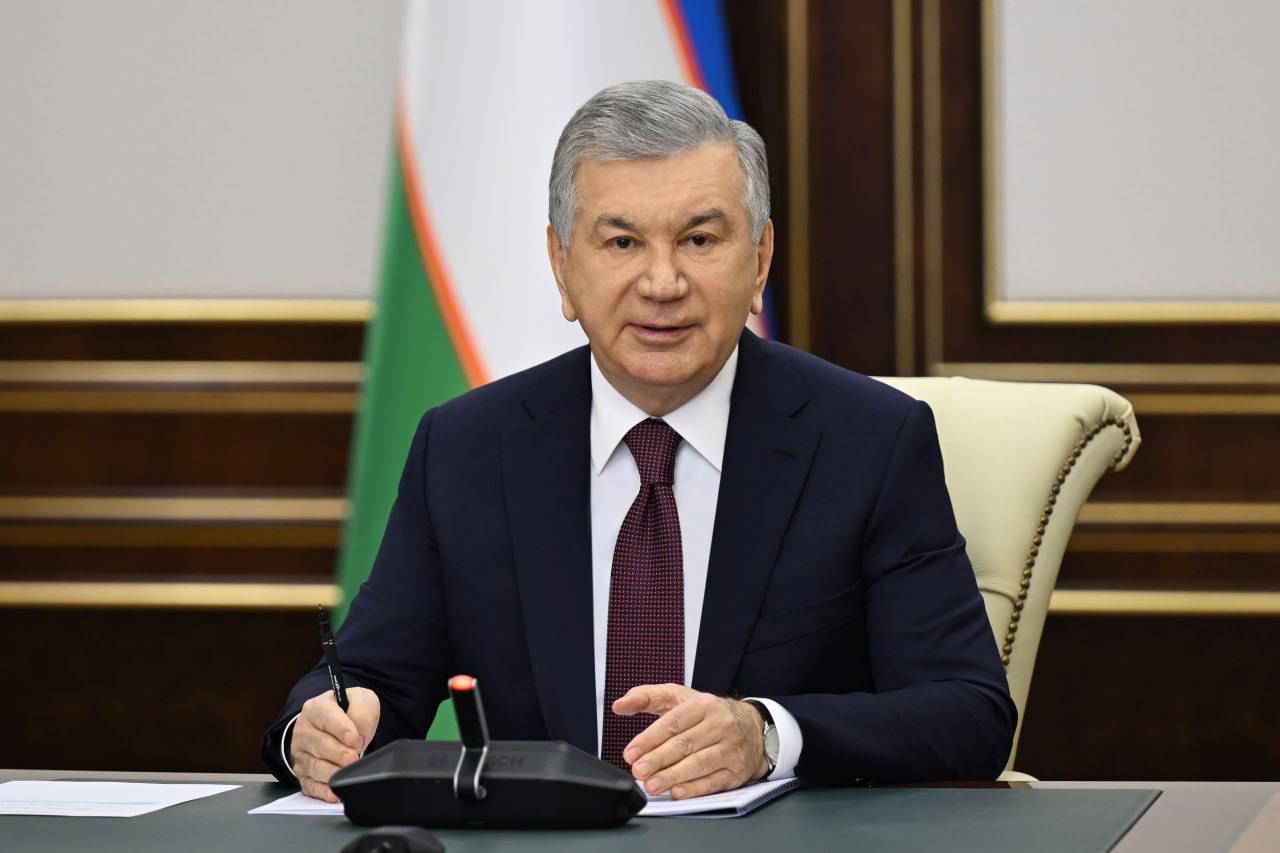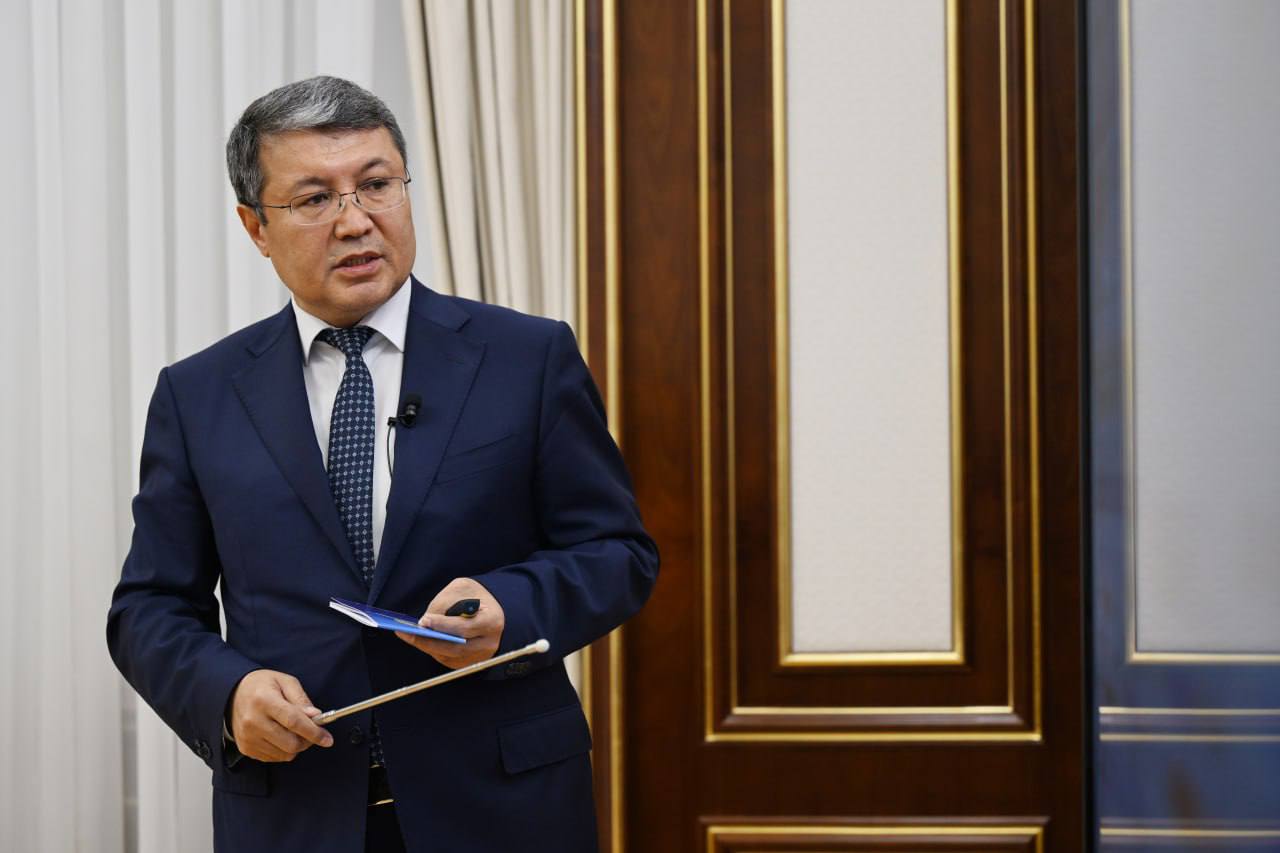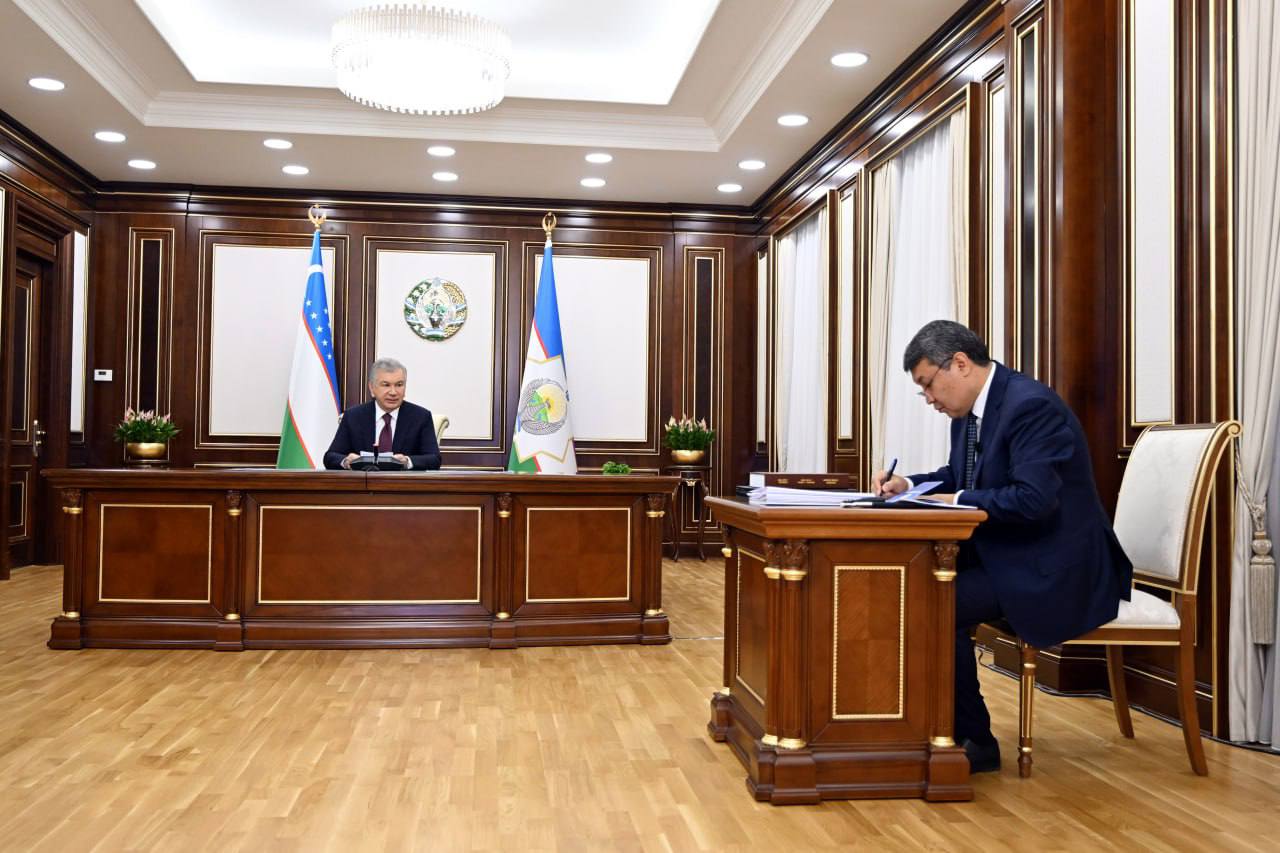
21.11.2025
On November 21, President Shavkat Mirziyoyev got acquainted with the presentation of proposals on reforming the spheres of intellectual property, archives and legal education.
In the past years, large-scale work has been conducted in the sphere of intellectual property. 51 legal acts have been adopted, Uzbekistan has jointed 8 international agreements. Intellectual property protection has been strengthened - administrative and criminal penalties have been strengthened for offences in this area. “Ex officio” procedure has been introduced in the customs sphere, procedure for destroying counterfeit products has been introduced, a Month without counterfeit is being held annually.
The number of intellectual property objects has exceeded 102 thousand, protection of local brands abroad and foreign brands on Uzbekistan’s market has been expanded. 23 geographical indications have been registered, including Samarkand bread, Chust knives, Margilan adras.
As a result, our country increased by 14 positions and currently holds the 79th rank in the Global Innovation Index.
Plans for future development of the sphere were reviewed at the presentation. Particularly, it’s planned to develop a National strategy for intellectual property sphere development jointly with the World Intellectual Property Organization.
According to plans, the procedure for making changes in patents and evidence will be simplified, 5 composite and 4 proactive services will be introduced.
Moreover, the status of using intellectual property will be considered in the Rating of the sustainability of business entities.
Centers for facilitating patents, industry implementation and commercialization are planned to be opened in all higher education institutions and research and scientific organizations. It’s planned to create a faculty “Intellectual property objects management” at National University first, and then four more institutions.
To stimulate the authors and specialists it’s suggested to conduct “Best intellectual property objects” contests in 5 areas. A special badge “For contribution to the development of intellectual property sphere” will be created, which will be presented on April 26 – on International intellectual property day.
The importance of strengthening the system of national geographical indications was emphasized. The significance was pointed of the registration of about seventy geographical indications, increasing the value and export potential of the national brands through joining the Lisbon system.
During discussions of the issues of modernizing archives, it was noted that the national archives today store 16 million units, including 1.3 million of especially significant and rare documents. The archives of the Kushbegi chancellery of the Emir of Bukhara and the chancellery of the Khiva Khanate have been included in UNESCO’s “Memory of the World” Register.
At the same time, the pace of document digitization is only 2 percent per year. It was noted that by 2030, the level of digitization of the archival fund must be increased to 60 percent, and all especially valuable and rare documents must be fully digitized.
To achieve this, it is planned to integrate sectoral information systems into the Unified National Archival Information System, introduce a document accounting and online tracking system using radio-frequency identification (RFID) technology, and use artificial intelligence technologies in document classification and recognition processes. The functions of district (city) archives will be transferred to regional archival administrations.
It was also proposed to create “Shajara” information system. The new service will allow users to create their own family tree, search for information on birth, marriage, and death, as well as distant relatives based on genetic data.
Issues of further reforming legal education and science were also discussed.
At the Tashkent State University of Law, the introduction of clinical and dual education is planned. The share of practical training in students’ education will be increased to 50 percent, and legal clinics will be established in the areas of civil, criminal, and business law. Based on modern sectoral requirements, new educational programs “Digital Law” and “Corporate Law and Governance” will be launched.
At the same time, it was proposed to update the organizational structure of faculties according to the principle of “education – research – practice,” with the gradual transformation of departments into divisions, as well as to establish a University Professors’ Council.
During the presentation, special attention was given to eliminating gaps in legislation and reducing the regulatory burden.
As part of this work, it is planned to abolish about 800 regulatory documents that have lost their relevance and significance, review 77 documents, and reduce more than 15 excessive requirements for entrepreneurs, thereby easing business conditions. Through evaluating the effectiveness of laws, conflicting norms and legal gaps will be systematically eliminated.
The President underlined the necessity of systemic introduction of the initiatives presented, as well as further increasing of effectiveness, comfort for the population and entrepreneurs in the reviewed spheres.





